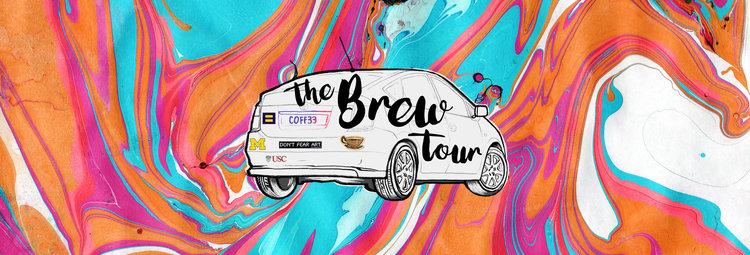From: Chicago, IL
Area of Study: BM Performance and Education
Favorite Brew: Strong Coffee
Q: How do you utilize music to promote social change?
Kat: "I’m focused a lot on educational inequality because it’s where I first started to notice injustice. Now, I went to a magnet school in Chicago, the same school that Michelle Obama went to, but none of my cousins or my friends from church went to that school. I was clearly getting a lot of things that they weren’t getting, but why? Why weren’t they allowed the same resources? So, the one thing I hope to instill into my future students is the idea that “you can”. We all have a lot of people tell us what we can’t do. When I was in high school, people would ask me why I was playing “white people music”, trying to tell me that what I loved didn’t matter. I’m sorry, but if you like something, do it. If you want to college and everyone thinks it’s stupid, do it. Why would you want to be another statistic? In the classroom I want to have that sort of impact with music. Also, for the last year I’ve been trying to research composers of color because I went through 3 ½ years here and never played any music by a person of color. As long as people of color aren’t a prominent part of classical music, the idea that classical music is white people music only, will continue. Once kids of color start to see names like theirs, people who look like them, that are from the same places that they’re from, then it’s not weird anymore. So, to answer your question, there isn’t just one time for social justice or time for music. They can exist at the same time, and they most definitely go together; music is great that way."

